How to choose a mattress – from filling to firmness, here's what you need to know before you buy
A guide to getting to grips with how to choose a mattress, from the softest fillings to the difference in mattress springs
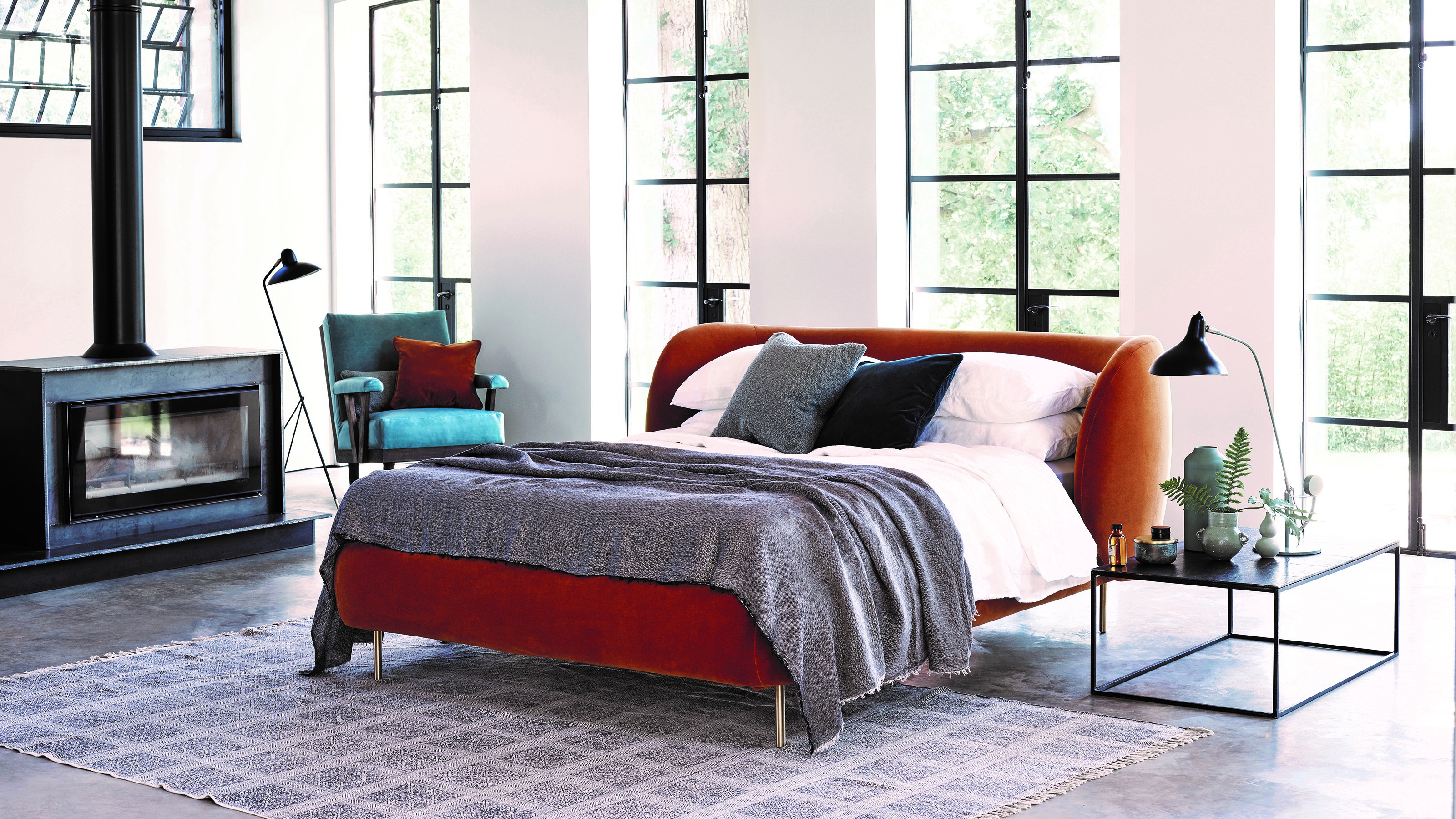

Knowing how to choose a mattress that's right for you is an important part of designing your bedroom. After all, what is bedroom design but setting the scene for a good night’s sleep?
Finding the best mattress for you can mean some serious spend, so there is a lot to learn before you commit to one. After all, your mattress is key to comfort and should be a long-term buy.
‘You spend a third of your life in bed, so you should treat it as an investment,’ says interior designer, stylist and Ensemblier brand director, Tara Craig. ‘It’s a staple piece that will stay with you.’
For those looking to invest wisely, we look at the considerations for choosing the right mattress for you, from materials, fillings, size and more.
How to choose a mattress size
Think first about how to choose a mattress size, which might depend on whether you have a bedframe already or not. ‘You each want at least 23" either side of the bed to make it comfortable,’ advises Tara Craig, which, for a couple, is accommodated by anything upwards of the standard Full mattress. Measure your mattress up against these sizes when browsing to find the best mattress size for you.
The standard length of a Twin bed and Full bed mattress is 75". A Queen and King are 80", so if you are particularly tall, you might want to think about upsizing for added comfort. You can also get a Twin XL mattress which is as wide a normal Twin, but has the added 5" in length. A California King is 84" long.
In terms of width, a Twin measures 38", a full measures 74", a Queen comes to 60" and a King is 74" wide. A California King isn't quite as wide as a King mattress at 72", but it is the longest.
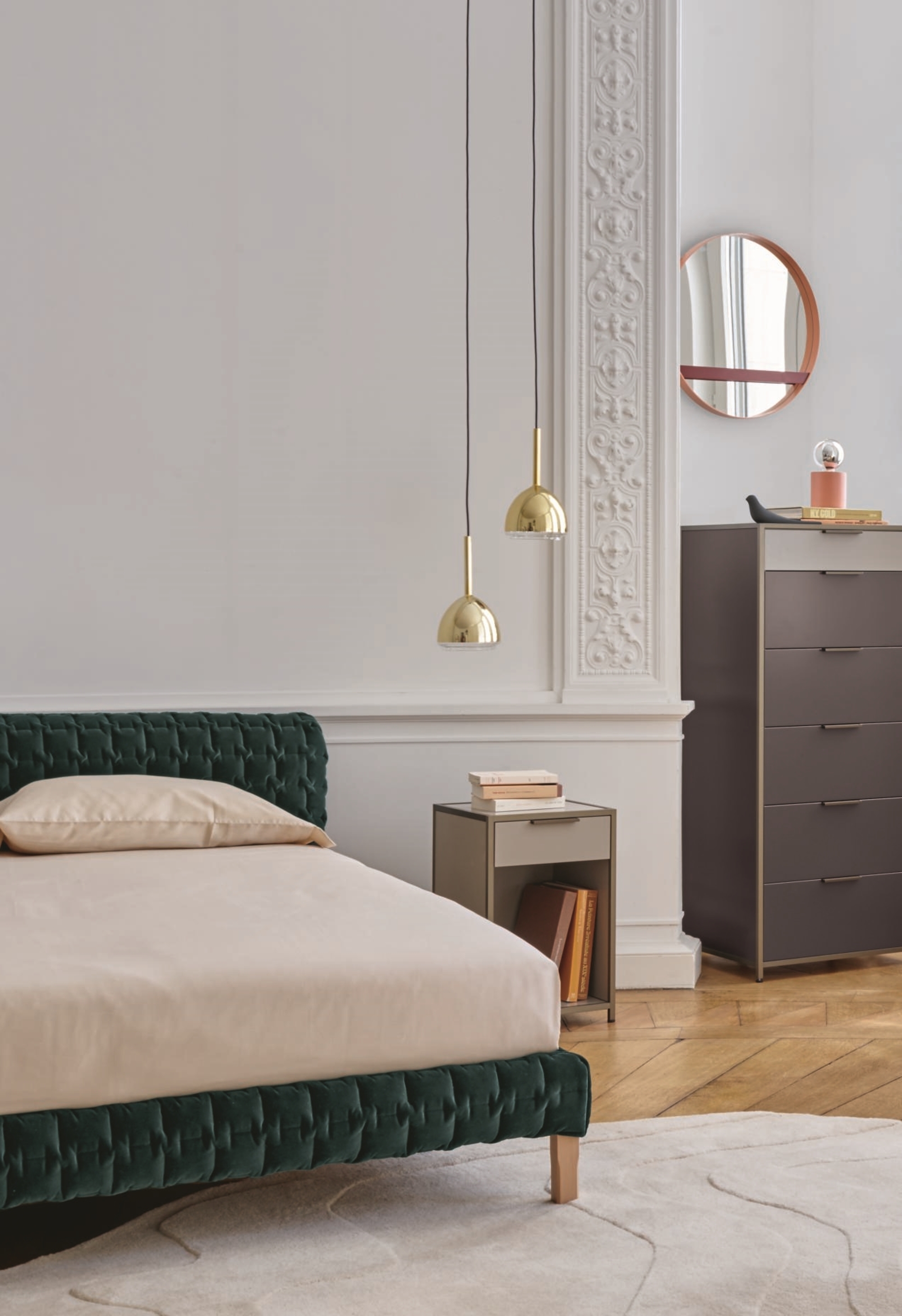
What are the different mattress springs?
The most popular mattresses on the market involve some kind of spring mechanism. A coil spring is connected by a continuous wire that runs throughout the mattress, meaning your mattress moves as one. If your partner moves at night, you move too, which can greatly impact the quality of your sleep if you share a bed and are a light sleeper.
A pocket spring is made up of individual springs, so any movement is isolated. This is a better option if you're looking to prioritize a good night's sleep, while they may be a bit more on the expensive size.
What's the best mattress filling?
Interior sprung mattresses use a variety of fillings, chosen for their resilience and durability. Cotton is breathable, while natural fibres like silk, wool and mohair make for a luxury bedroom idea and provide insulation. You can also pick from coconut fibres. Coir fibre is usually applied in pads and is applied close to the springs for added insulation.
'We recommend natural fibres for their health benefits and offer better comfort as well as being sustainable and better for the planet,' says Mark Tremlett of Naturalmat.
'For the same reason we always avoid synthetics and any toxins. Most people have a budget so we just say spend as much as you can on your mattress as you spend more time in bed than doing anything else. A really expensive mattress will cost you far less than a daily cup of coffee over an eight year lifespan and there are many benefits of a good night’s sleep.'
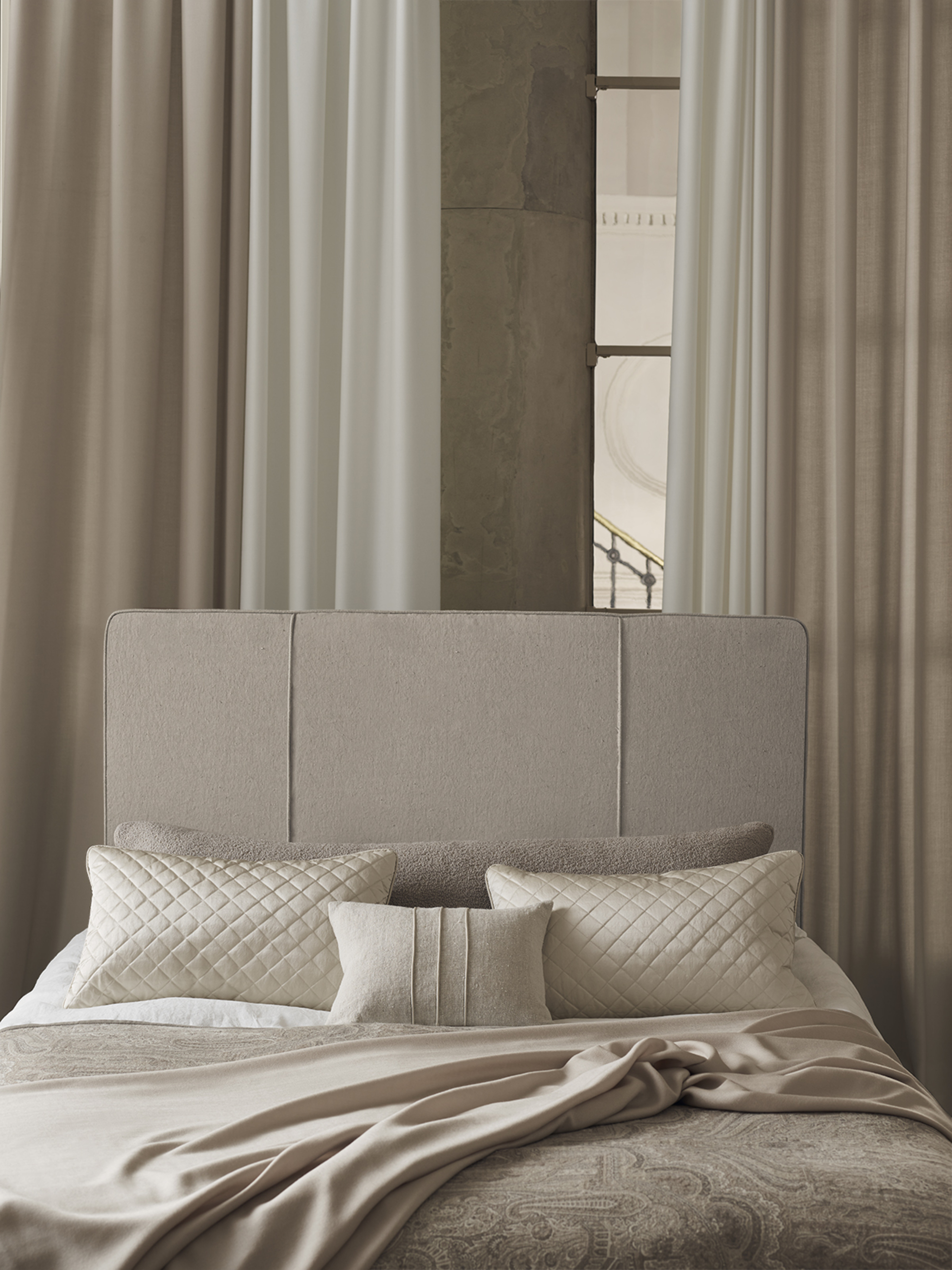
Are memory foam mattresses any good?
A memory foam mattress is a popular choice, and while comfortable at first, shaping to the imprint of your body, the foam doesn’t allow for the vital circulation of air, so isn't always favored for a modern bedroom.
‘People don’t know that ventilation is an important part of a good night’s sleep,’ explains Mark. 'When you put a mattress on a bed frame, you need to create a circulation of air around your mattress so it performs at maximum comfort level and creates air flow for regulating temperature.’ Memory foam acts as a real buffer in terms of air flow.
Memory foam is also not the best choice environmentally. ‘More and more research is coming out about the effect of chemicals in foam and it takes the longest to break down and can’t be recycled,’ says Tara.
How do I decide on a firmness for my mattress?
It is often presumed that a harder mattress is best for your back, but try and disregard this myth when shopping for your dream mattress. In fact, correct support depends on your weight, height and sleeping position. A general rule of thumb is that the heavier you are, the firmer the tension you need.
When testing your mattress, remember that when you lie on your side, your spine should be horizontal, so the right firmness for you will depend on how you sleep. Softer mattresses suit side sleepers more than firmer ones, but again, the right choice for you will come down to your weight.
Don't be afraid of spending a good amount of time testing out a mattress in a shop, it's a long term investment that can't be gaged from a quick lie down.
'We always recommend that you try before you buy for a bedroom for a couple, as you need to make sure that you and your partner are comfortable and choose different sides if you are different weights or have different preference,' advises Mark. If the mattress is for a child, bring them along - they should have a say in their levels of comfort.
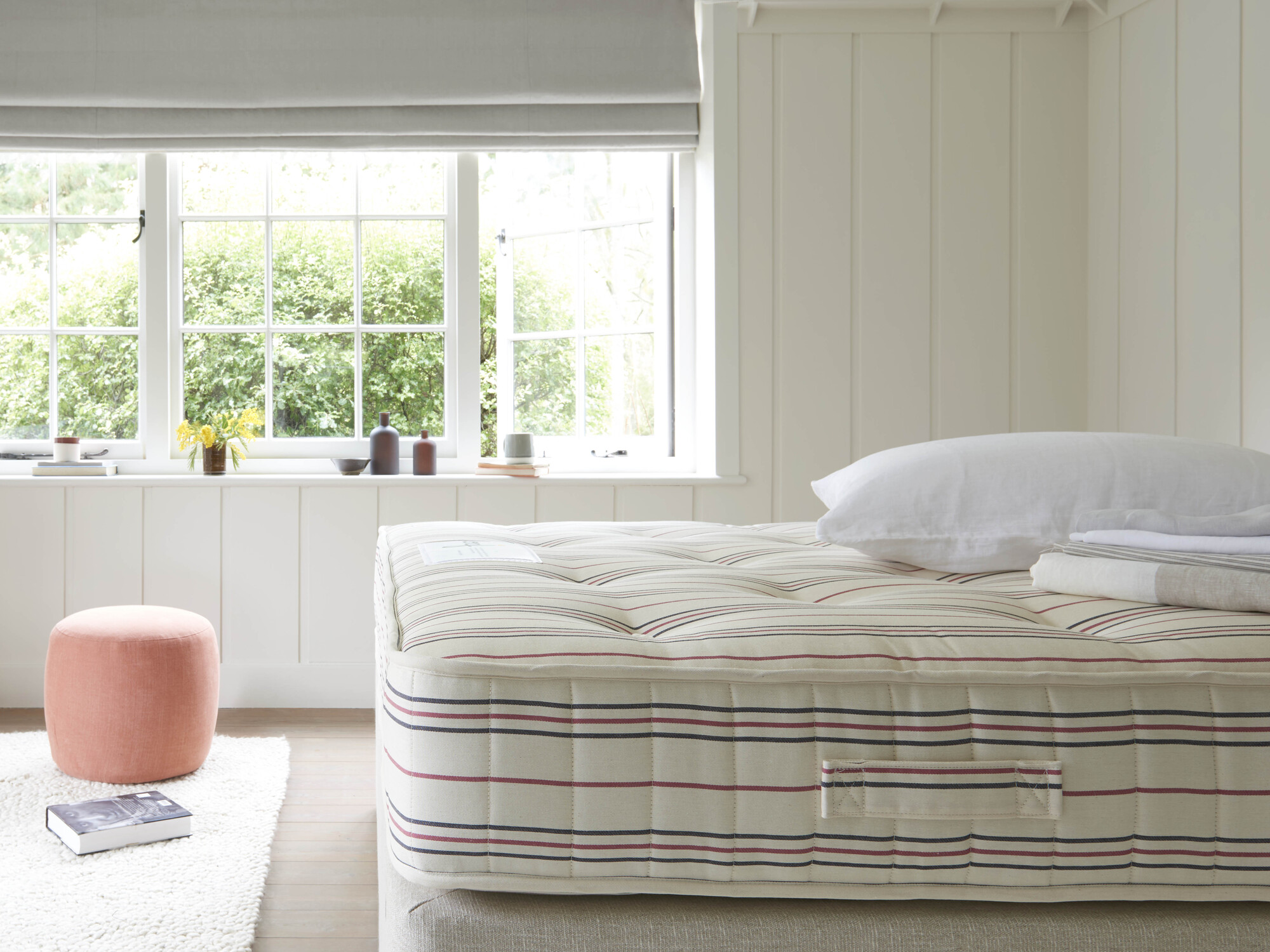
Is a mattress topper worth it?
Always remember a mattress topper, adding extra comfort and helping your bed base last longer by adding a buffer layer between your mattress and you. A mattress topper also helps your mattress stay clean and fresh, meaning it lasts even longer. Finally, a good cotton or wool mattress protector is another essential protective layer.
What mattress quilting is best?
Mattress quilting is another factor to consider. Quilting is a decorative effect giving a padded design to the mattress top. Meanwhile, tufting involves tapes passed through the center of the mattress and secured on each side by tags. This means that the filing is kept firmly in place. Some mattresses also involve hand-stitched sides which keep the mattress in better shape for longer.
What other types of mattress are there?
It's not all springs and foam though, there are a couple of unconventional mattresses on the bed buying market that some customers swear by. Gel mattress is a new filling that is created with technology and known for its cooling thermo regulating properties. delivering benefits like breathability and pressure relief.
There is the 70s classic, the waterbed, which might be a bit of a dated option, but gives the user a good deal of control as support is determined by the amount of water used. Futons are made from layers of cotton or fibre wadding which are stylish and can be easily rolled away. These mattresses are typically found on sofa beds which make for a good spare bedroom idea.
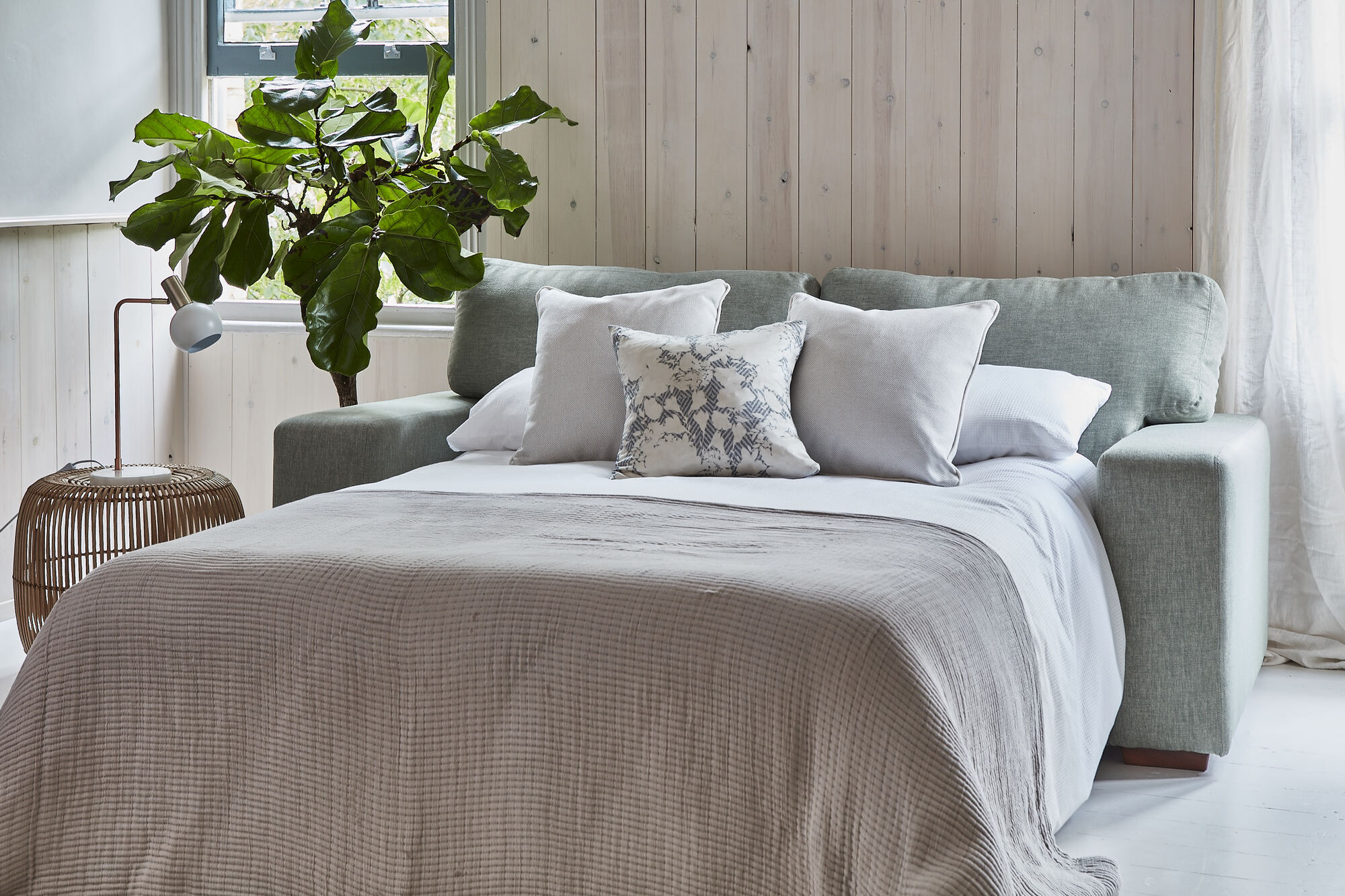
Are mattresses recyclable?
Think about your mattress in the long term. 'It’s extremely important to consider the end of life of your mattress, we are all moving towards being more sustainable and mattresses are one of the worst offenders at landfill sites,' says Mark.
'There are currently waste mountains piling up with are full of mattresses,' he adds. 'One of our goals is moving towards a mattress industry without waste, we aim to create a fully closed loop by 2025 which will reduce material consumption as well as passing on reduced costs to consumers.'
However, recycling mattresses isn't the easiest of tasks. You may have specialist recycling programmes in your area, but due to the nature of their make-up, recycling them is labor intensive. Choosing mattresses made from natural materials will help to make the recycling process easier, and many elements of a mattress can be reutilized in other ways around the home, or potentially donated if in good condition.
Be The First To Know
The Livingetc newsletters are your inside source for what’s shaping interiors now - and what’s next. Discover trend forecasts, smart style ideas, and curated shopping inspiration that brings design to life. Subscribe today and stay ahead of the curve.

Former content editor at Livingetc.com, Oonagh is an expert at spotting the interior trends that are making waves in the design world. She has written a mix of everything from home tours to news, long-form features to design idea pieces, as well as having frequently been featured in the monthly print magazine. She is the go-to for design advice in the home. Previously, she worked on a London property title, producing long-read interiors features, style pages and conducting interviews with a range of famous faces from the UK interiors scene, from Kit Kemp to Robert Kime. In doing so, she has developed a keen interest in London's historical architecture and the city's distinct tastemakers paving the way in the world of interiors.
-
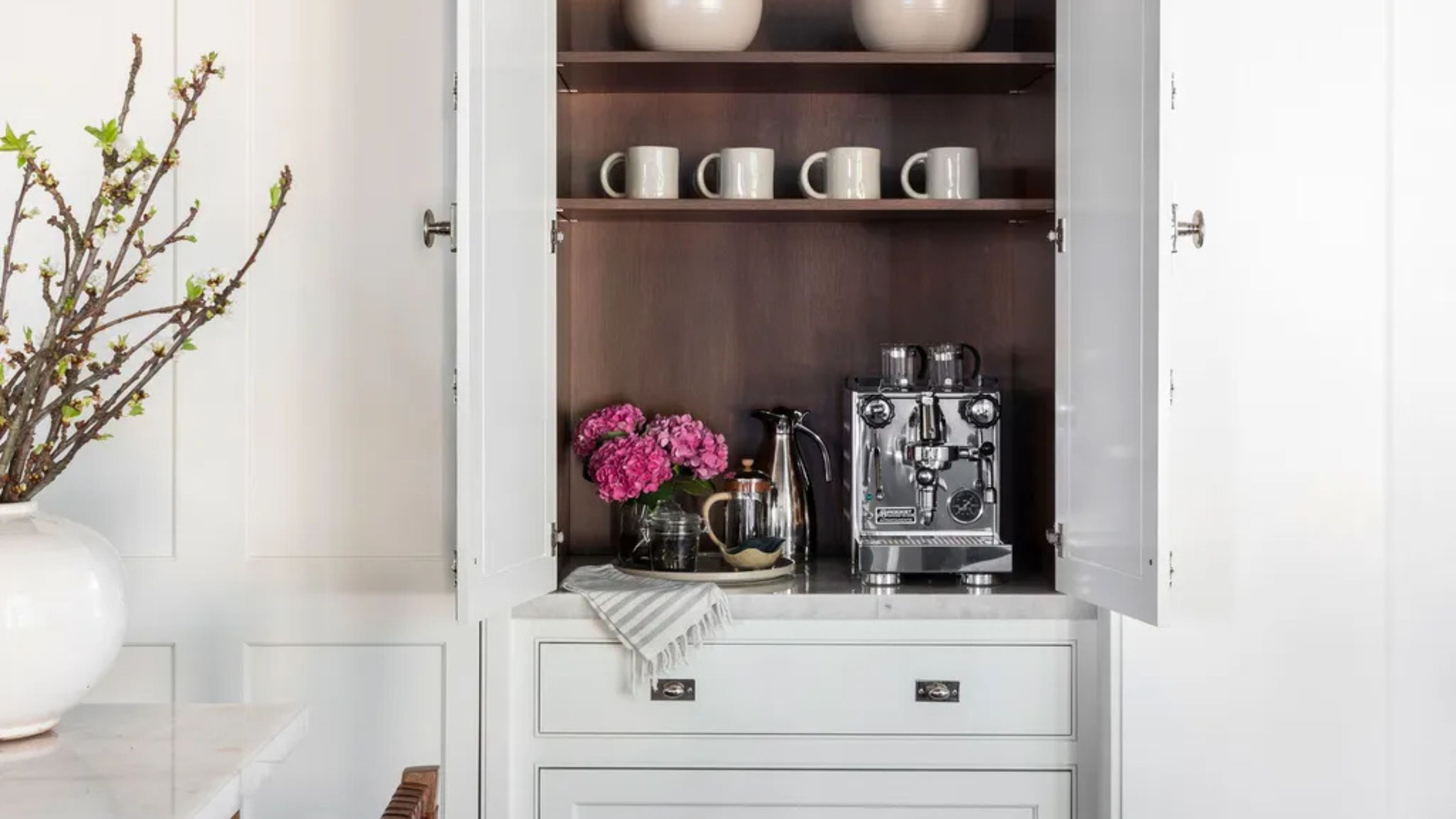 Turns Out the Coolest New Café is Actually In Your Kitchen — Here's How to Steal the Style of TikTok's Latest Trend
Turns Out the Coolest New Café is Actually In Your Kitchen — Here's How to Steal the Style of TikTok's Latest TrendGoodbye, over-priced lattes. Hello, home-brewed coffee with friends. TikTok's 'Home Cafe' trend brings stylish cafe culture into the comfort of your own home
By Devin Toolen Published
-
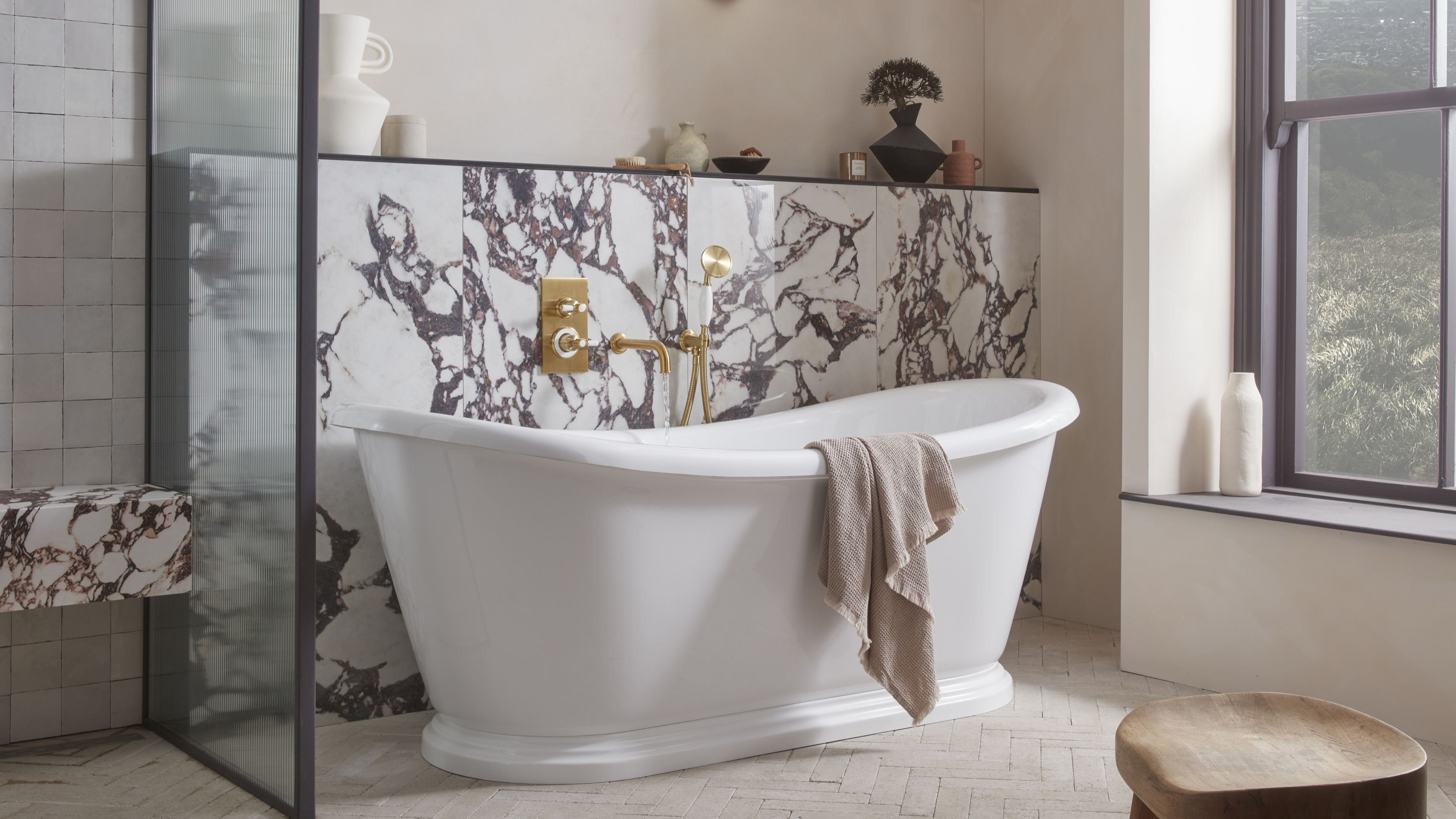 5 Bathroom Layouts That Look Dated in 2025 — Plus the Alternatives Designers Use Instead for a More Contemporary Space
5 Bathroom Layouts That Look Dated in 2025 — Plus the Alternatives Designers Use Instead for a More Contemporary SpaceFor a bathroom that feels in line with the times, avoid these layouts and be more intentional with the placement and positioning of your features and fixtures
By Lilith Hudson Published